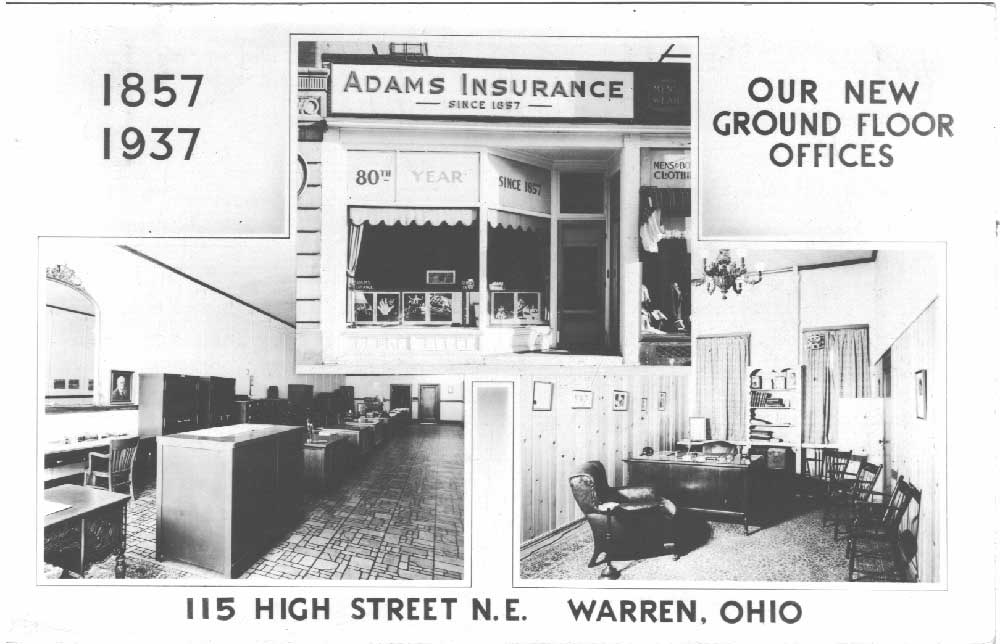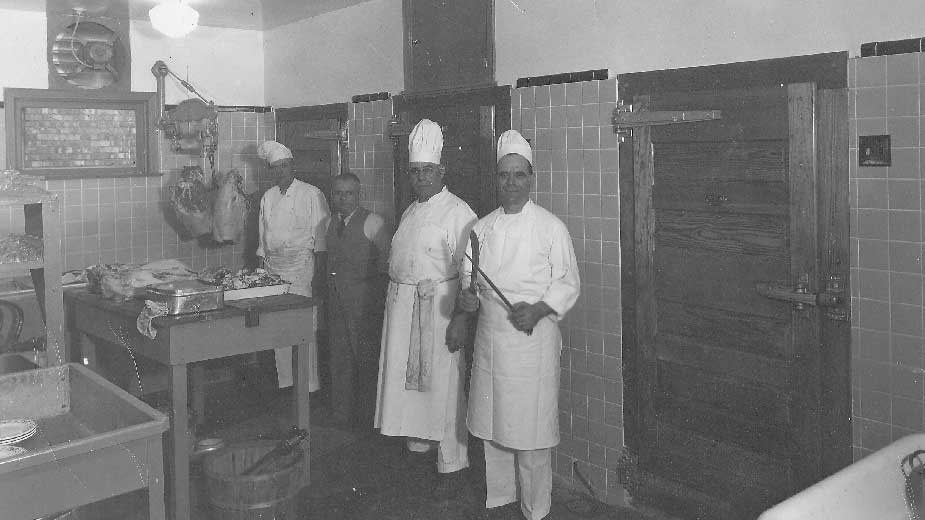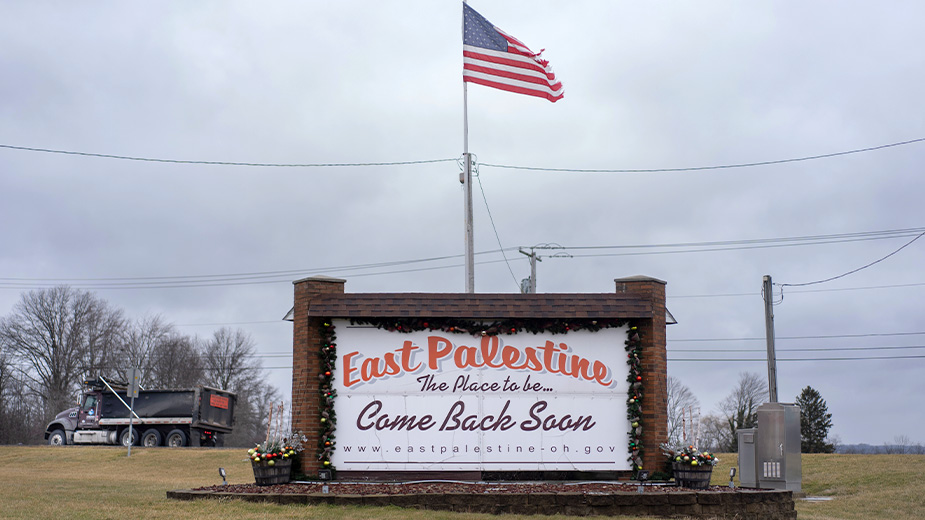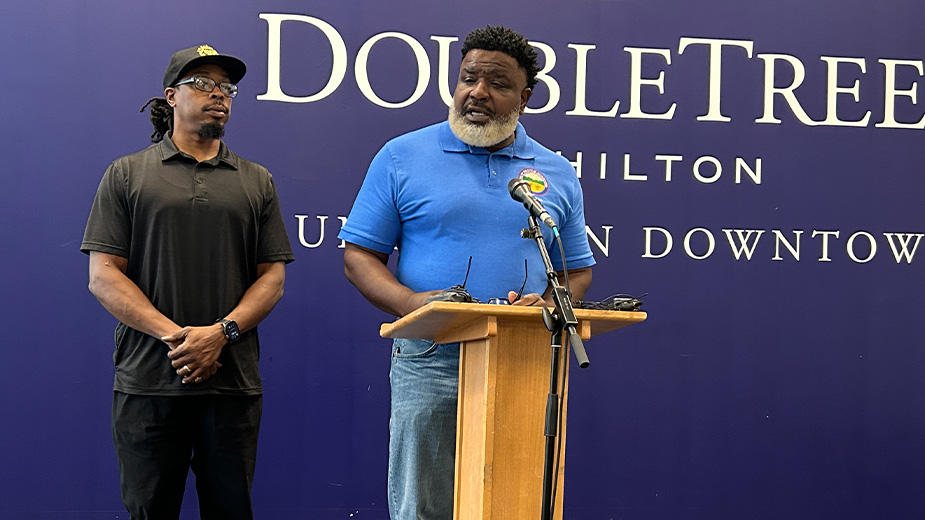Family Business Helped Build Character of the Valley
YOUNGSTOWN, Ohio – Like anywhere else in the world, the business landscape of the Mahoning Valley started small. People moved to the area, set up companies – often with the help of their families – to serve the needs of their community. Over time, those family businesses grew bigger and bigger, leaving an imprint on the Mahoning Valley and on our collective memories.
While some of the names most synonymous with the Youngstown area are tied to the steel industry – the Tods, the Wicks and others – it was their predecessors in the iron industry that became some of the first big names in family business around the turn of the 20th century.
“Looking at our own history, the early iron industry was mostly proprietorships of the mills and mining operations. You have names like Cartwright McCurdy & Co. and the Andrews & Hitchcock Iron Co. – the shareholders were family members and their extended families,” says Bill Lawson, executive director of the Mahoning Valley Historical Society.
In Trumbull County, the earliest family businesses can be dated to the early 1800s, says Meghan Reed, executive director of the Trumbull County Historical Society.
“Adams Insurance was one of the oldest family-run businesses. It was a fire insurance company started by Asael Adams in the early 1800s that folded after Warren’s Great Fire broke out in 1846,” she says. “One of his descendents, Whittlesey Adams, picked it back up in 1857 and it ran for years, well over a century, through other Adams family members.”
As the local economy took off, waves of migrants came to the region seeking work. Immigrants traditionally settled in neighborhoods surrounded by those from their homeland and it was in these communities that many family businesses got their starts.
“Within all the square miles of the city of Youngstown, you had enclaves because it was easier for people to live and adjust to their new society and find work and spend time with people who had a common language and culture,” Lawson says. “People formed these subcommunities to help each other and that extended out to businesses like the corner grocery, the gas station, the repair shop, the hardware store, the roofer, the plumber. They all worked within their own enclave and within their own tribe, so to speak. It made it easier to get by.”
In Warren, those enclaves usually live on through restaurants, Reed says. Places like The Saratoga, DiVieste’s Banquet Center and Leo’s Ristorante got their start during waves of migration and have been passed down through three or four generations.
“Between 1904 and 1924 Warren alone saw its population grow more than 300%. … If you think about living in a town growing that fast, you can see the cultural significance as well,” she says. “They looked for opportunities and created neighborhood support. They wanted to keep their neighborhood anchored and, especially for ethnic communities, create a place to gather together.”

After World War II, as the area’s population surged and expanded outward and toward suburbs, many of those connections to a family’s original neighborhood remained, Lawson says. At the same time, the role of family businesses like The Saratoga shifted. No longer were they just catering to particular neighborhoods or ethnic groups.
“Over time, that shifted from, say, a Greek restaurant to something that’s now part of our larger social fabric,” Reed says. “If you look at the Saratoga Restaurant, it was founded in 1935 by the Economos family and is now one of the most vibrant restaurants we have.”
As companies moved, expanded, shrank or changed leadership, ties stayed steadfast. It wasn’t unheard of for multiple generations of the same family to work at the same steel mill or, later, at General Motors.
“There’s pride in a company name. … There was an identity in that,” Lawson says. “Handel’s started out as a family business; it passed from the Handel family to the Fisher family and it’s now nationwide. We identify with that, just as we identified with Isaly’s even though Youngstown was their second market, behind Pittsburgh. When the Isalys moved into a new market, they sent part of the ‘family’ there to run it. That identity moved as the company grew.”
Reed also suggests that family businesses serve as a testament to one of the area’s most valued characteristics: resiliency. Plenty of family-owned businesses have closed over the past few decades and the ones that have survived hold a higher place in our collective identity.
“They’re tangible examples of what we can look to for how our communities have shifted,” she says. “Given the history of the Mahoning Valley, they speak to resiliency. There are so many that have closed over the years and buildings that have been torn down. The ones that survive really made it. They’re a testament to the resiliency of the area and residents connect with that, whether they worked for the business or not.”
This week, The Business Journal is spotlighting some of the locally owned, family businesses operating in the Mahoning Valley and sharing the story of their origins. Check back daily to see all the familiar names.
Pictured at top: Members of the Economos family in the kitchen of The Saratoga Restaurant in Warren. Image courtesy of the Economos family via Trumbull County Historical Society.
Copyright 2024 The Business Journal, Youngstown, Ohio.



